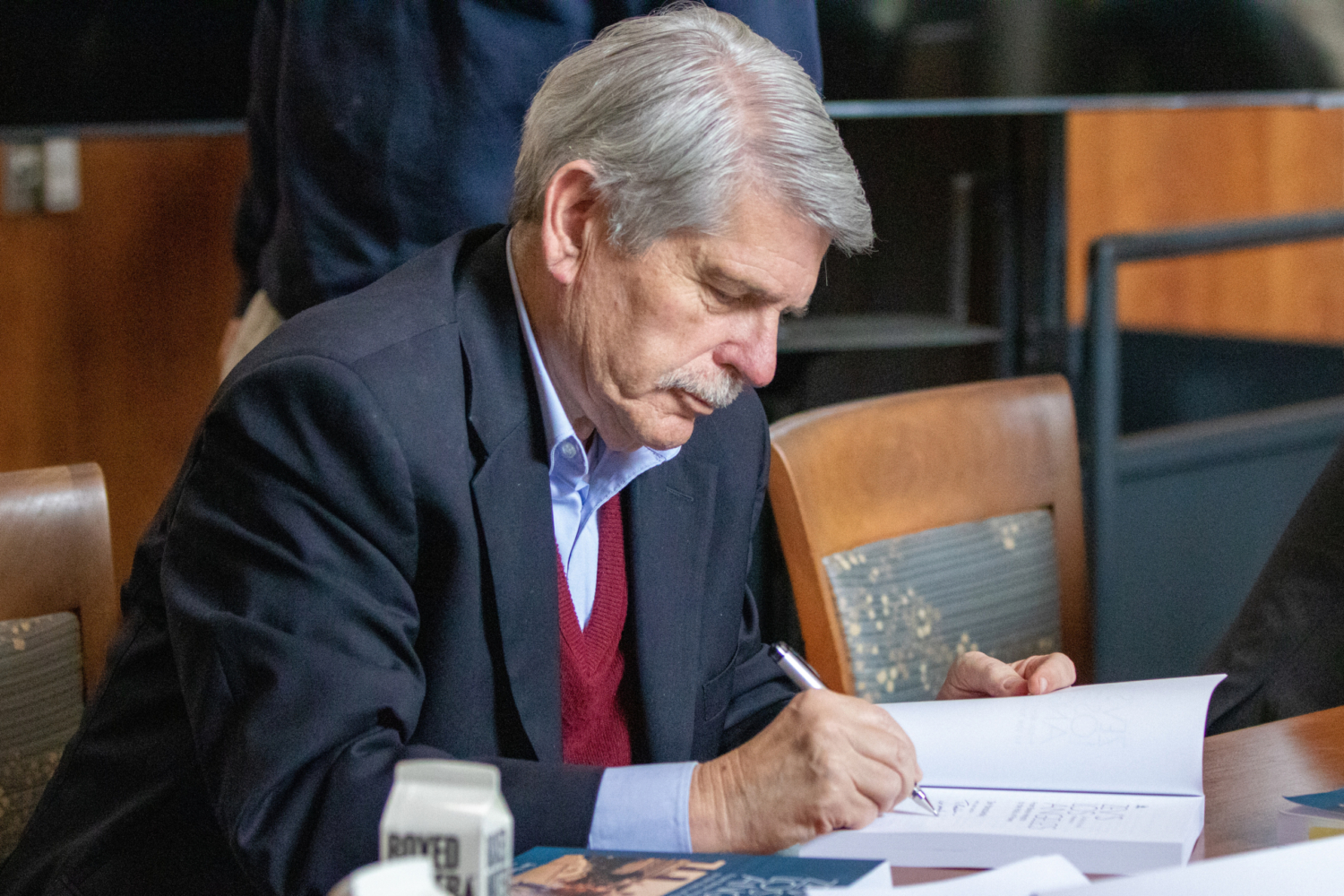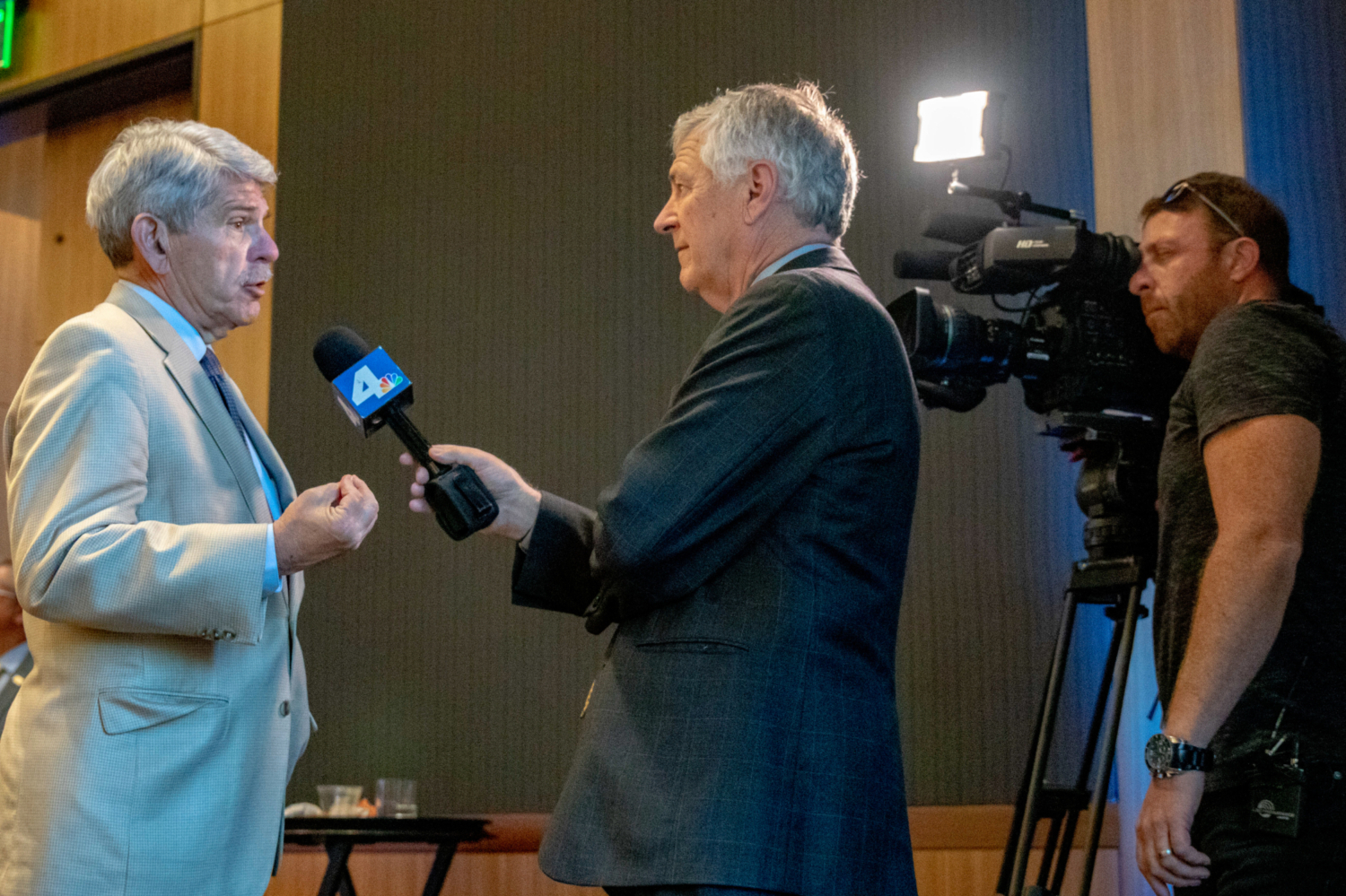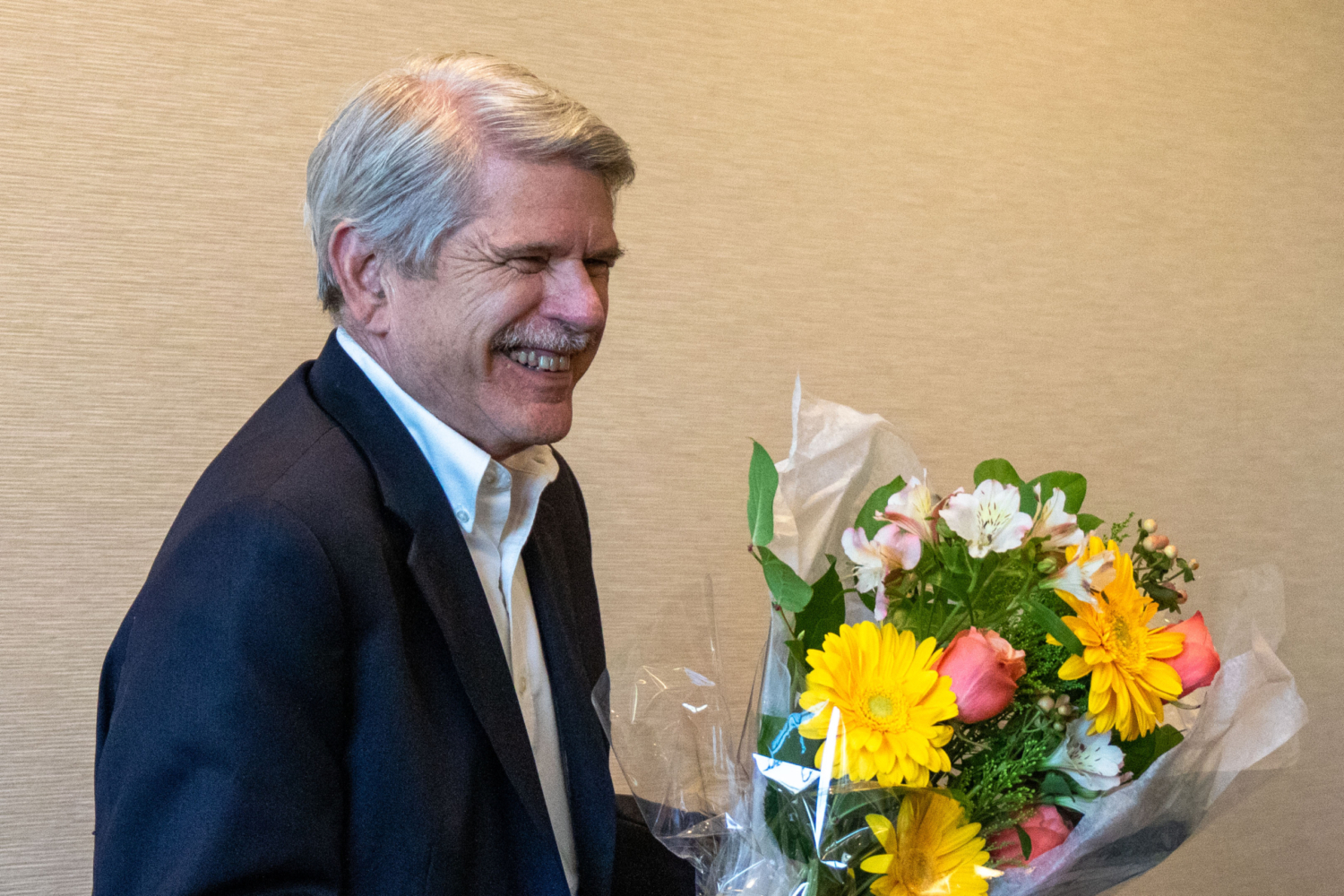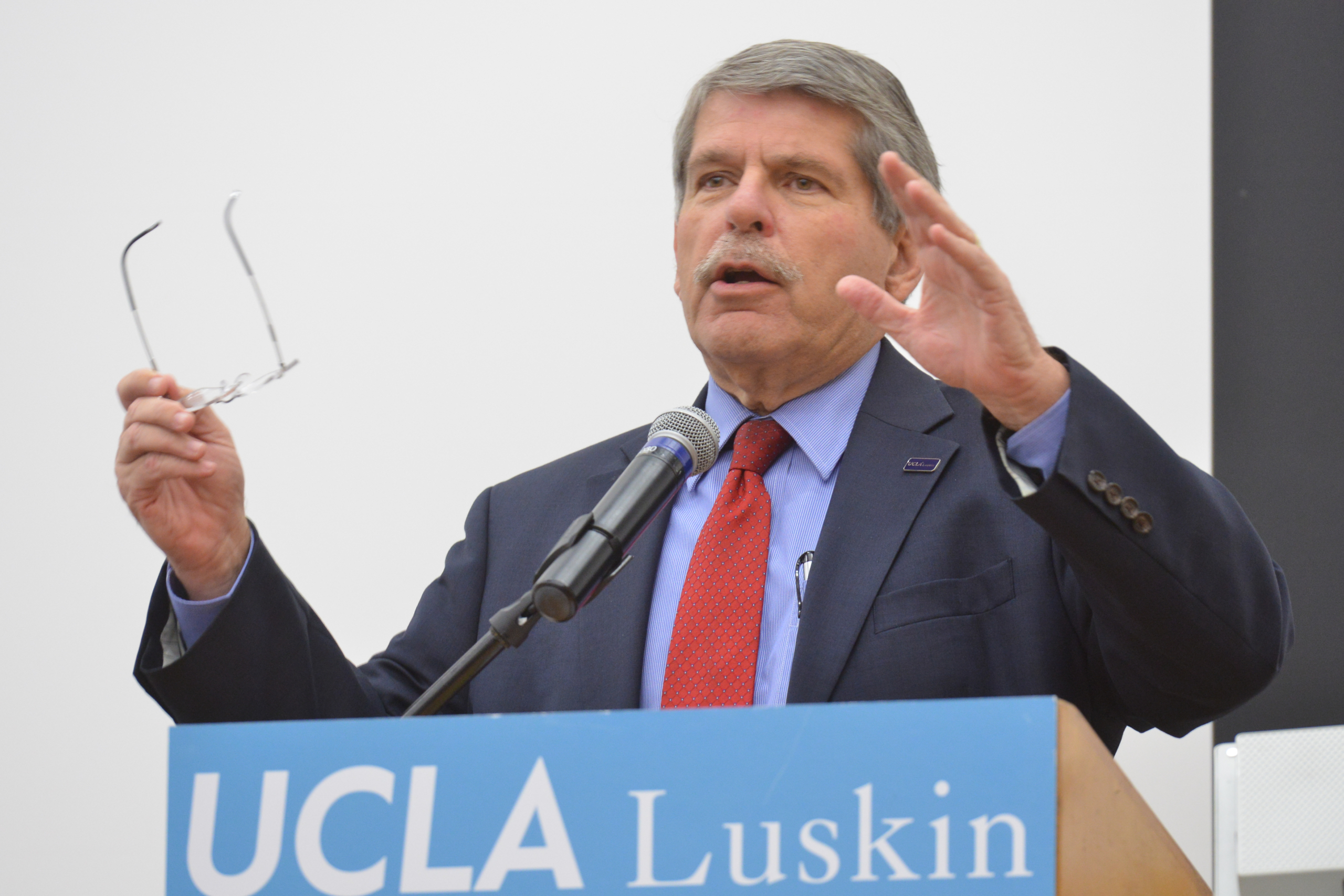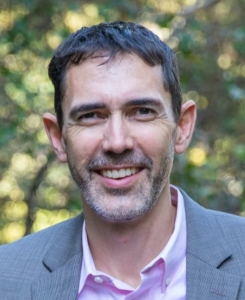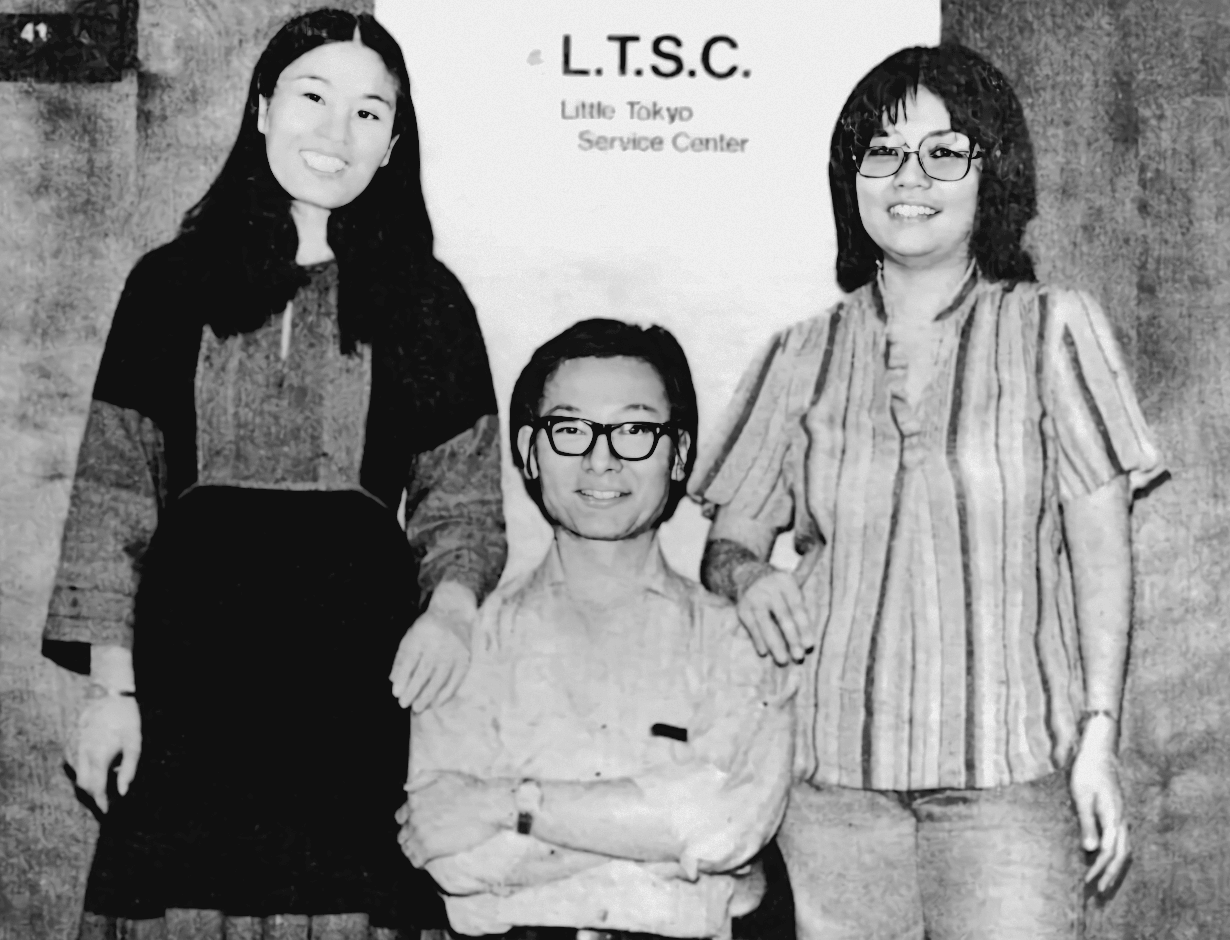Mega-Events, Major Opportunities As it prepares to host a series of monumental gatherings, L.A. is urged to seize the moment to bring lasting benefits to the region
Los Angeles is preparing to host several monumental events in the coming years, including the FIFA World Cup in 2026, Super Bowl LXI in 2027, and the Summer Olympics and Paralympics in 2028.
How can government and civic leaders balance the immediate needs of these global exhibitions with long-term planning goals that advance accessibility, equity and sustainability across the region?
That question was the focus of “Mega Events, Major Opportunities,” the 34th annual UCLA Lake Arrowhead Symposium held in October. The three-day experience presented by the Institute of Transportation Studies (ITS) at UCLA Luskin drew nearly 170 attendees from the spheres of policymaking, urban planning, advocacy, philanthropy, academia and more.
Participants emphasized the need not just for temporary, event-specific game plans but also for lasting improvements that benefit the lives of Angelenos long after the crowds go home.
A report published by ITS summarizes the symposium’s key takeaways. Some highlights:
Coordination and Inclusion
Several speakers said Los Angeles’ preparations for the blitz of mega-events is like the rush to clean one’s house before guests arrive. The City of Los Angeles, LA Metro and the nonprofit LA28, which is organizing the Summer Olympics and Paralympics, are among the major entities working under deadline pressure to ensure the events are smoothly run.
But there’s a need for more coordination and transparency to identify and meet the common goals of government, civic and private sectors, several symposium participants said.
A top priority is authentic community engagement to hear directly from Angelenos about what investments might bring lasting benefits to their neighborhoods. In particular, attendees called for the inclusion of people with disabilities in the planning process, to help jumpstart Los Angeles’ stated commitment to improve accessibility for all.
A ‘Transit-First Games’
When the L.A. Games come to town, each venue will have a wide perimeter, thanks to U.S. Department of Homeland Security protocols. Public transit, not personal vehicles, will ferry most spectators to the events, creating a unique incentive to accelerate infrastructure changes that improve the efficiency of L.A.’s bus system. One strategy endorsed by symposium participants is a far-reaching public education campaign to help overcome political opposition to dedicated bus lanes, which can make transportation more affordable, equitable and climate-friendly.
Mega-event planners may be motivated by a desire to avoid traffic gridlock that causes spectators, workers, media and even athletes to miss events, but providing quality public transportation service for the people who live in Los Angeles ought to be top of mind.
Investing in Housing, Neighborhoods and Local Business
To keep costs down, LA28 planners will maximize the use of existing venues and supporting infrastructure. But symposium participants identified ample opportunities for investments that ensure that the Games are successful and the city is left better off than before:
- Housing built for the army of temporary workers who will need to relocate to Los Angeles could then be repurposed to fill a dire need for affordable housing or permanent supportive housing.
- The Games could be a catalyst for neighborhood improvement projects, including gathering places for watching the events. Community input, along with funding from local governments, local businesses and philanthropy, could lead to thriving and accessible public spaces that reflect the character of neighborhoods.
- In Los Angeles County, 94% of companies have fewer than 20 employees, but small and mid-size businesses often face challenges in meeting procurement requirements of governments and large businesses. LA28 contracting opportunities that prioritize local, small and diverse businesses could create markets that extend well beyond the mega-event.
Meeting the urgency of hosting the world is a challenge for Los Angeles, symposium participants concluded, but also an opportunity to break through a bureaucracy-as-usual approach and create a more vibrant future for all Angelenos.



